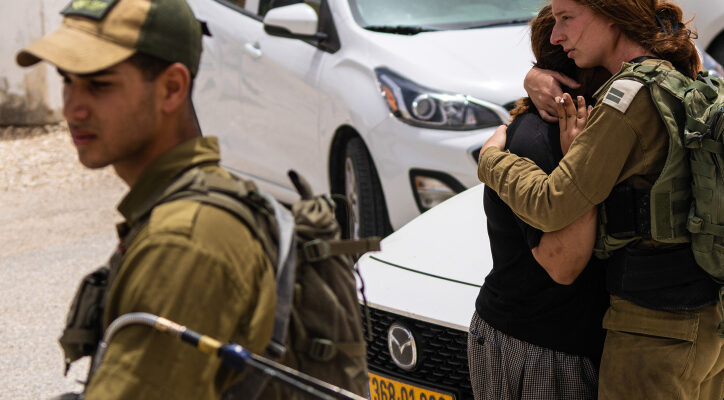In a statement, the Egyptian government downplayed the killings, minimized the shooter’s responsibility, and avoided naming terror as a motivation for the deadly attack.
By World Israel News Staff
New details about a deadly attack on IDF soldiers committed by an Egyptian police officer suggest that the perpetrator was motivated by Islamic extremism.
Early Saturday morning, an Egyptian border police officer crossed into Israel without advance permission and fatally shot two IDF soldiers who were guarding a remote outpost in Israeli territory.
Several hours later, the gunman exchanged fire with additional troops, shooting and killing a third soldier. The perpetrator was shot dead during that clash.
Despite statements from the Egyptians and Israeli governments stressing ties between the two countries and both nations avoiding naming a motivation for the killings, Hebrew-language media noted on Sunday morning that the perpetrator was carrying a Koran at the time of the attacks.
He was also armed with several handguns, multiple knives, and additional ammunition – suggesting that he was possibly intending to carry out a larger attack within Israel.
The number of weapons carried by the police officer, along with the Koran, go far beyond the level of standard gear for Egyptian security forces while on duty.
Several hours after the incident on Saturday, the Egyptian government released a carefully worded statement that downplayed the killings, minimized the shooter’s responsibility, and avoided naming terror as a motivation for the deadly attack.
Without providing evidence for the claim, the Egyptian government said that the police officer had been chasing after a drug trafficker when he crossed the border.
Notably, even if the officer had been in a hot pursuit of a drug trafficker, international law – as well as Israeli and Egyptian military policies – would not have allowed him to enter Israel to continue the chase.
IDF reports have found no proof that the Egyptian had been in the midst of a pursuit when he crossed, and in fact found that he had quietly entered the country through an emergency gate.
The Egyptian statement also falsely insinuated that the officer shot the two IDF soldiers after exchanging fire with them. However, early ballistics reports suggest that the troops guarding the outpost never fired their weapons at the attacker, suggesting that he shot them immediately and that they were swiftly immobilized by the perpetrator.





